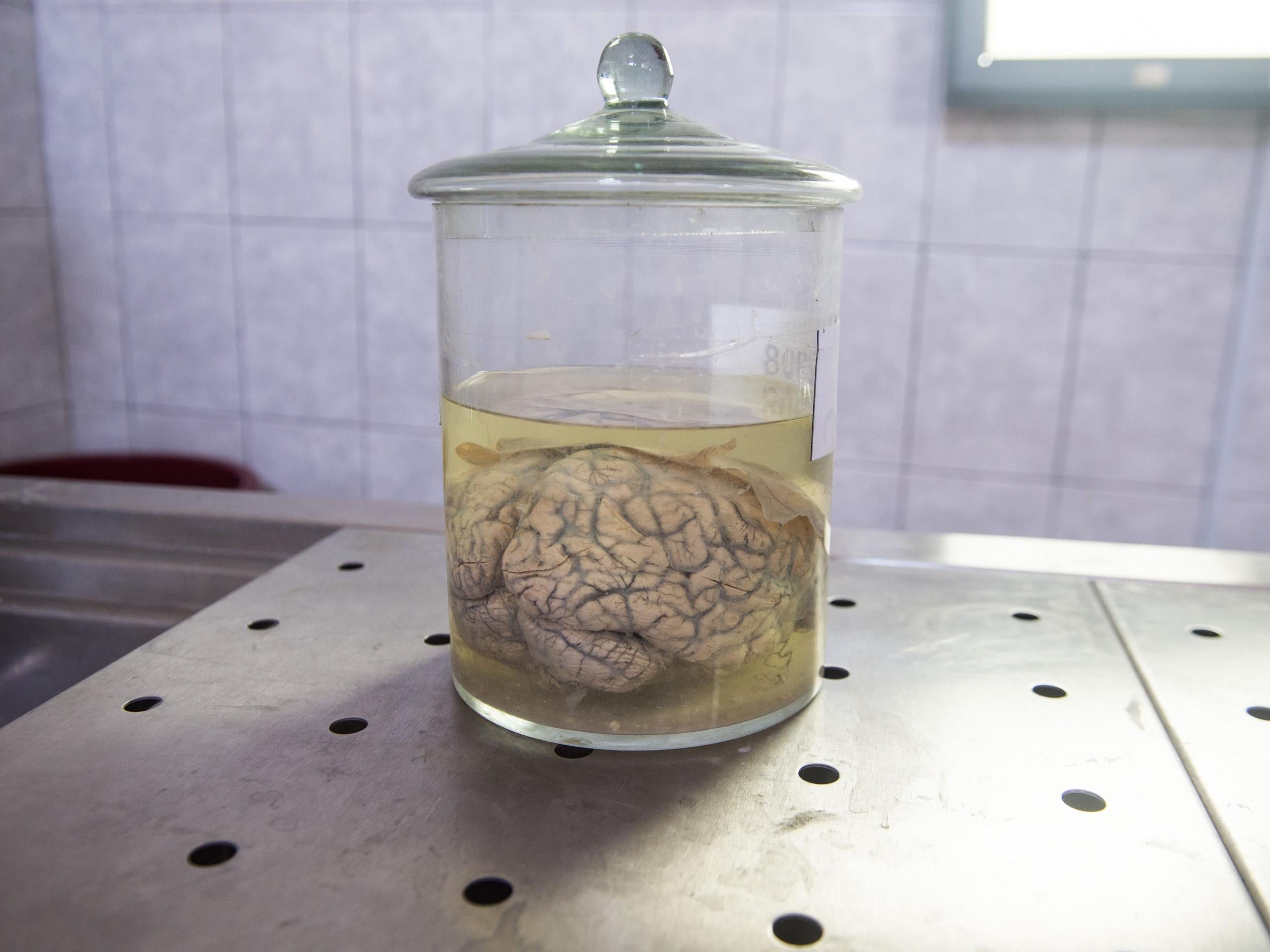The Independent's journalism is supported by our readers. When you purchase through links on our site, we may earn commission.
Pig brains kept alive outside bodies for first time could have major implications for humans
Experiment raises concerns about ethics of future research into brains in laboratories

In a world first, scientists have revived the brains of around 200 pigs and kept them alive outside their bodies for 36 hours.
Brains rescued from a slaughterhouse had their circulation restored with a system of pumps, heaters and artificial blood.
While the researchers were certain the disembodied brains did not regain consciousness, they did find that billions of cells in the brains began functioning normally following the treatment.
The results were announced at a meeting held by the US National Institutes of Health discussing ethical issues in neuroscience.
Comments by Yale University neuroscientist Dr Nenad Sestan, who led the research, were subsequently reported by the MIT Technology Review this week.
The outcome was described by Dr Sestan as “mind-boggling” and “unexpected”, and he expressed concern about potential future applications in humans.
His team's research is being heralded as a breakthrough, as it is the first time brains belonging to such large animals have been sustained in this way.
In order to establish what was going on in the revived pig brains, the Yale team placed electrodes on the organs’ outer surfaces.
These electrodes are able to pick up signs of electrical activity hinting at thoughts and feelings.
After initially shocking results indicating the brains were partially conscious – which later turned out to be mistaken – the scientists concluded they were producing a flat brain wave comparable with someone in a comatose state.
“That animal brain is not aware of anything, I am very confident of that,” said Dr Sestan.
He said that efforts could be made to keep brains alive indefinitely outside their bodies, and perhaps even restore awareness, but noted he had made the decision not to pursue such goals.
Dr Sestan said Yale surgeons had already enquired about the potential medical uses of brain preserving technology, but acknowledged the ethical implications of such actions.
He also expressed concern about how the techniques his team has developed might be used in the future.
“Hypothetically, somebody takes this technology, makes it better, and restores someone’s [brain] activity,” he said.
“That is restoring a human being. If that person has memory, I would be freaking out completely.”
However, Dr Sestan has since said he does not wish to elaborate on the findings of his pig brain experiment, as he is awaiting publication of the results in a scientific journal.
These results emerged in the same week the scientific journal Nature published a discussion of the ethics surrounding sustaining or growing human brain tissue outside the body.
The paper was authored by 17 leading scientists, ethicists and philosophers – including Dr Sestan himself – and imagined a future scenario in which researchers could create brains in a laboratory that had conscious experiences.
Researchers are already growing miniature balls of brain tissue – dubbed “brain organoids” – outside the body
Others have successfully transplanted human brain cells into mice, or else studied brain tissue removed from patients during surgery.
All of these endeavours have scientific value, as they are being undertaken to gain an understanding of serious conditions like Parkinson’s disease and schizophrenia.
“Yet the closer the proxy gets to a functioning human brain, the more ethically problematic it becomes,” argue the Nature report’s authors.
“To ensure the success and social acceptance of this research long term, an ethical framework must be forged now,” they concluded.
In his presentation, Dr Sestan said he was concerned about how this kind of work would be received by both the general public and the research community.
“People are fascinated. We have to be careful how fascinated,” he said.
Join our commenting forum
Join thought-provoking conversations, follow other Independent readers and see their replies
Comments
Bookmark popover
Removed from bookmarks